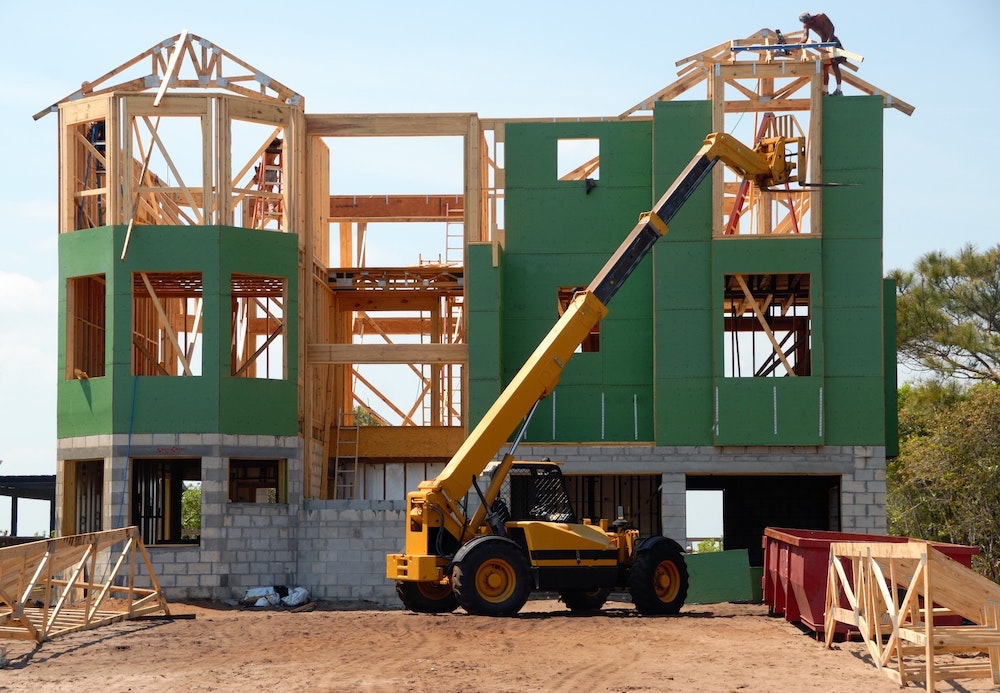UK house prices remained flat month-on-month in March ahead of the April stamp duty changes, Nationwide has revealed.
The building society said in its latest house price index (HPI) that the average house price in the UK stood at £271,316 in March, a year-on-year increase of 3.9%.
This matches the annual increase recorded in February.
Chief economist at Nationwide, Robert Gardner, said: "These price trends are unsurprising, given the end of the stamp duty holiday at the end of March. Transactions associated with mortgage approvals made in March, especially toward the end of the month, would be unlikely to complete before the deadline.
"The market is likely to remain a little soft in the coming months since activity will have been brought forward to avoid the additional tax obligations – a pattern typically observed in the wake of the end of stamp duty holidays.
"Nevertheless, activity is likely to pick up steadily as the summer progresses, despite wider economic uncertainties in the global economy, since underlying conditions for potential home buyers in the UK remain supportive."
In its HPI, Nationwide revealed that Northern Ireland was the best performing region in the UK in terms of house price growth, with prices increasing by 13.5% to £205,796 year-on-year.
In the three months to the end of March, house prices in Scotland (£186,131) and Wales (£209,839) jumped annually by 3.9% and 3.6%, respectively.
In England, the North West was the best performer, with prices increasing by 5.9% to £221,896, and prices in London jumping by 1.9% year-on-year to £529,369, the highest regional price in the UK.
Personal finance analyst at Bestinvest by Evelyn Partners, Alice Haine, added that with rising transaction costs and uncertainty around the country’s economy, budgets are set to be "stretched to the max", leading to homebuyers having to "weigh up the cost of home ownership very carefully from today".
She concluded: "Mortgage rates may be easing, a result of three interest rate cuts since August last year, but the outlook is uncertain. The Bank of England kept interest rates on hold in March to keep inflationary pressures at bay, not only from Chancellor Rachel Reeves’ tax hikes but also US President Donald Trump’s tariff war, which is raising anxiety levels across the globe.
"While some movers may choose to park buying plans for now while they reassess their affordability position, first-time buyers wanting to escape high rents and keen to plough ahead have options. Some mortgage providers are relaxing their lending criteria, while no-deposit mortgages are back on the table along with longer-term home loans, such as 30, 35 or even 40 years.
"Now is the time to negotiate more heavily. Listings are on the rise, and with the spring selling season now upon us, a time when more homeowners typically place properties on the market, it may be a buyers’ market once again."
Latest News
-
Residential property transactions fall 24% month-on-month
-
Later life lending loans jump 5.1% in Q4 2025
-
Mortgage Awards 2026: Winners announced
-
FCA outlines proposals to close gaps in borrowers’ credit files
-
St. James’s Place closes 2025 with record FuM
-
Average LTV on UK mortgaged home drops to 59% – IMLA
Mortgage Advice Bureau and AI in the mortgage sector
Chief executive officer at Mortgage Advice Bureau, Peter Brodnicki, and founder and managing director at Heron Financial, Matt Coulson, joined content editor Dan McGrath to discuss how Mortgage Advice Bureau is using artificial intelligence to make advancements in the mortgage industry, the limitations of this technology and what 2026 will hold for the market
Perenna and the long-term fixed mortgage market

Content editor, Dan McGrath, spoke to head of product, proposition and distribution at Perenna, John Davison, to explore the long-term fixed mortgage market, the role that Perenna plays in this sector and the impact of the recent Autumn Budget
NEW BUILD IN FOCUS - NEW EPISODE OF THE MORTGAGE INSIDER PODCAST, OUT NOW

Figures from the National House-Building Council saw Q1 2025 register a 36% increase in new homes built across the UK compared with the same period last year, representing a striking development for the first-time buyer market. But with the higher cost of building, ongoing planning challenges and new and changing regulations, how sustainable is this growth? And what does it mean for brokers?
Does the North-South divide still exist in the UK housing market?

What do the most expensive parts of the country reveal about shifting demand? And why is the Manchester housing market now outperforming many southern counterparts?
In this episode of the Barclays Mortgage Insider Podcast, host Phil Spencer is joined by Lucian Cook, Head of Research at Savills, and Ross Jones, founder of Home Financial and Evolve Commercial Finance, to explore how regional trends are redefining the UK housing, mortgage and buy-to-let markets.
In this episode of the Barclays Mortgage Insider Podcast, host Phil Spencer is joined by Lucian Cook, Head of Research at Savills, and Ross Jones, founder of Home Financial and Evolve Commercial Finance, to explore how regional trends are redefining the UK housing, mortgage and buy-to-let markets.
© 2019 Perspective Publishing Privacy & Cookies











Recent Stories